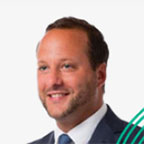
Donor Conception & Surrogacy: Preventing & Addressing Post Conception Complexities October 7, 8 and 9 2025
OVERVIEW
Hosted by the Brocher Foundation, Hermance, Geneva, this expert workshop provides an opportunity to consider and respond to various complexities in third party reproduction. In the interest of future families, the aim is to place their needs and human rights at the centre, in particular children born in these situations.
This workshop will provide a unique opportunity for discussions between an interdisciplinary international group comprised of Donor Conceived (DC) adults, DC parent(s) and donor(s), together with practicing and academic bioethicists, children’s rights experts, legal, psychosocial and medical practitioners. It will include global and national actors from the UN, HCCH, Government, and Civil Society. The field is rich with interdisciplinary questions, compounded by varying legal contexts including cross-border challenges.
Online preparation meetings
Two online meetings (90 minutes) will be organised for all experts with the purpose of meeting each other and starting the discussions ahead of the Brocher event. It will also be an opportunity to consider potential outputs and prepare “outlines” or “martyr drafts” where there is agreement.
- 13h00-14h30 CET 27 February 2025
- 13h00-14h30 CET 26 May 2025
Potential Outputs
As a result of the expert meeting, we will consider the following outputs which we will discuss during the preparation meetings :
- Expert meeting summary
- Academic paper(s)
- Briefing notes on “Considering the child’s needs & rights” directed at different persons (intending parents, donors, States, lawyers and medical practitioners etc.)
- Other ideas etc.
Organisé par la Fondation Brocher, Hermance, Genève, cet atelier d’experts offre l’opportunité d’examiner et de répondre aux diverses complexités de la reproduction impliquant un tiers. Dans l’intérêt des futures familles, l’objectif est de placer leurs besoins et leurs droits humains au centre des discussions lors de cet atelier, en particulier les enfants nés dans ce contexte.
Cet atelier offrira une occasion unique de discussions entre un groupe international interdisciplinaire composé d’adultes conçus par don, de parents, de donneurs, ainsi que de bioéthiciens praticiens et universitaires, d’experts en droits de l’enfant et de praticiens juridiques, psychosociaux et médicaux. Des acteurs internationaux et nationaux des Nations unies, de la HCCH, des gouvernements et de la société civile y participeront. Le domaine est riche de questions interdisciplinaires, rendues plus complexes par des contextes juridiques variés, comportant des défis transfrontaliers.
Réunions de préparation en ligne
Deux réunions en ligne (90 minutes) seront organisées pour tous les experts dans le but de se rencontrer et d’entamer les discussions avant l’événement Brocher. Ce sera également l’occasion d’examiner les éventuels résultats des discussions et de préparer les « grandes lignes » ou les « projets de martyrs » en cas d’accord.
– 13h00-14h30 CET 27 février 2025
– 13h00-14h30 CET 26 mai 2025
Éventuels résultats :
À la suite des réunions d’experts, nous envisageons de publier les informations suivantes si possible :
– Résumé des réunions d’experts
– Document(s) académique(s)
– Notes d’information sur la « Prise en compte des besoins et des droits de l’enfant » destinées à différentes personnes (parents d’intention, donateurs, États, juristes et praticiens médicaux, etc.)
– Autres idées, etc.
Organizado por la Fondation Brocher, en Hermance (Ginebra), este taller de expertos ofrece la oportunidad de examinar y responder a las diversas complejidades de la reproducción con la participación de un tercero. En interés de las futuras familias, el objetivo del taller es situar en el centro de los debates sus necesidades y derechos humanos, en particular los de los niños y niñas nacidos en este contexto.
Este taller ofrecerá una oportunidad única para el debate entre un grupo interdisciplinario internacional de adultos concebidos mediante donación, madres, padres y donantes, así como bioeticistas en ejercicio y académicos, expertos en derechos de los niños y niñas y profesionales jurídicos, psicosociales y médicos. También participarán actores internacionales y nacionales de las Naciones Unidas, de la Conferencia de La Haya de Derecho Internacional Privado, de gobiernos y de la sociedad civil. Se trata de un ámbito rico en cuestiones interdisciplinares, que se hace más complejo por los variados contextos jurídicos, con retos transfronterizos.
Reuniones preparatorias en línea
Se organizarán dos reuniones en línea (90 minutos) para que todos los expertos se conozcan e inicien los debates antes del evento en la Fondation Brocher. También será la ocasión de examinar los resultados de los debates y preparar las « principales líneas » o los «borradores iniciales » en caso de acuerdo.
– 27 de febrero de 2025 – 13:00-14:30 CET
– 26 de mayo de 2025 – 13:00-14:30 CET
Posibles resultados:
Tras las reuniones de expertos, tenemos previsto publicar lo siguiente siempre que fuera posible:
– el resumen de las reuniones de experta/os;
– documento(s) académico(s);
– notas informativas sobre el tomar en cuenta las necesidades y los derechos de los niños y niñas, dirigidas a diferentes personas (padres de intención, donantes, Estados, abogada/os y médica/os, etc.);
– otras ideas, etc.
SPEAKERS

Ann Skelton
CRC Committee Chair (former), Professor Universities of Leiden and Pretoria
Ann Skelton is a Professor of Law and holds the Chair on Children’s Rights in a Sustainable World at the University of Leiden, where she is programme director on the Advanced Masters in International Children’s Rights. She also holds the UNESCO Chair in Education Law at the University of Pretoria. She is a visiting Professor at Strathclyde, and teaches children’s rights in the Masters in International Human Rights Law at Oxford. She established the strategic litigation work at the Centre for Child Law, and appeared as counsel in numerous landmark cases in the South African Constitutional Court. She was a member of the UN Committee on the Rights of the Child from 2017 to 2025, and was Chairperson from May 2023 to Feb 2025.
The CRC Committee first mentioned ART in 1994 in its concluding observations to Norway, questioning whether donor anonymity was compatible with children’s right to identity. After this promising start, the Committee’s attention to this issue drifted, but in recent years, there are signs of renewed attention. This presentation will take a tour through how the Committee has dealt with these issues in its concluding observations over the years, and determine from that what the Committee’s approach is to the child rights impacts of ART and surrogacy.
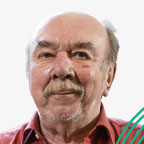
Bhaskar Mishra
UNICEF
Dr Nigel Cantwell is a Geneva-based international consultant on child protection policies. He founded the NGO Defence for Children International in 1979 and coordinated the inputs of the NGO Group for the Convention on the Rights of the Child throughout the drafting of that treaty. Following six years leading work on child protection issues at UNICEF’s Innocenti Research Centre, he has focused mainly on enhancing policy and practice for safeguarding the human rights of children affected by intercountry adoption and alternative care. In 2017, the University of Strathclyde awarded him an honorary doctorate in recognition of his work.
Waiting for Abstract
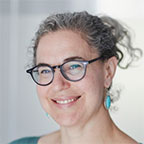
Yaël Ilan
Donor Conception Network & DC parent
Since 2015 I have worked at the Donor Conception Network, a UK charity supporting people considering egg or/and sperm donation to build or grow their families or those who have created their families through third+ party reproduction.
My role is multifaceted: offering individuals and families resources and information to help guide their decision making and information sharing, coordinating volunteer activities and recruitment and managing the throughflow of academic research activity in the Network. I support the children and teen group activities at our conferences, as well as provide technical support and professional input for DC Network’s workshops and materials for intended parents and families.
Prior to working at DC Network, I worked as a research associate in a small academic team conducting research and evaluation in applied Psychology; this included studying attachment, childhood experiences of care and abuse and the implication of these in the context of residential care as well as youth vulnerability.
On a personal level, I am a mother through egg donation undertaken at a clinic in Spain, to one daughter who was born in 2011.
Waiting for Abstract
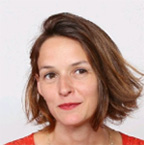
Audrey Kermalvezen
Origines – donor-conceived person
Audrey trained as a lawyer and specialised in bioethics law before discovering that she owed her conception to gamete donation, which she learned at the age of 29. She has been an active campaigner for the recognition of every person’s right to know their origins for some fifteen years. She co-founded the ORIGINES association with Arthur Kelmavezen-Fournis. Author of an essay-document ‘Mes origines : une affaire d’État’, under the name Audrey Kermalvezen, foreword by Professor Israël Nisand, published by Max Milo, 2014.
Audrey Kermalvezen was the first person conceived by gamete donation to take her case to the French courts in 2010, seeking access to her personal origins. After being rejected by the Council of State in 2015, she appealed to the European Court of Human Rights in 2016.
Audrey’s application was rejected by 4 votes to 3 in the Gauvin-Fournis v France judgment of 7 September 2023. Her application to refer the case back to the Grand Chamber was rejected.
In the Bioethics Act of 2 August 2021, the French legislature enshrined the right of persons born of gamete donation to know the identity of the donor, subject to a number of conditions.
Waiting for Abstract

Arthur Kermalvezen
Origines – donor-conceived person
Conceived through gamete donation, which he has always known.
For nearly 20 years, he has been actively campaigning for recognition of the right of every person to know their origins.
With Audrey Kermalvezen-Fournis, he co-founded the ORIGINES association, which he chairs.
Author of the book ‘Né de spermatozoïde inconnu’ (Born from an unknown sperm) (foreword by Serge Tisseron), published by Presse de la Renaissance in 2008 and reissued by J’ai Lu in 2010.
Since 2006, he has been a spokesperson for people conceived by gamete donation.
In September 2017, he became the first French person to trace the donor who conceived him using a recreational DNA test.
Co-author of the book ‘Le Fils’ with journalist Charlotte Rotman, published by Éditions L’Iconoclaste in February 2021.
Waiting for Abstract

Laura Martinez-Mora
HCCH
Works as a Secretary (Lawyer) at the Permanent Bureau of the Hague Conference on Private International Law (HCCH). She is responsible for the post-Convention work in relation to the HCCH 1993 Convention on Child Protection and Cooperation in Respect of Intercountry Adoption, as well as the Parentage / Surrogacy project. Laura has also worked on children’s issues at the International Social Service (Switzerland); UNICEF (Chile); the European Commission (Belgium) and the Council of Europe (France). She received her law degree from the University of Valencia (Spain), a Master of Laws (LL.M) in International Law with a specialisation in child’s rights (University of London, UK), and a Diploma in Child Protection and Juvenile Justice (University Diego Portales, Chile).
The HCCH Working Group on Parentage / Surrocacy is exploring provisions for a new instrument on this topic, to further inform CGAP on policy considerations in relation to the scope and content of such instrument, including on the feasibility of reaching consensus. The Working Group is proceeding on the basis that the aim of any new instrument would be to provide greater predictability, certainty and continuity of legal parentage in international situations for all persons concerned, taking into account their human rights, including, for children, those enshrined in the United Nations Convention on the Rights of the Child (UNCRC) and in particular their right that their best interests be a primary consideration in all actions taken concerning them.

Joelle Schickel
Head of PIL Section, FOJ
Joëlle SCHICKEL-KÜNG is Deputy Head of the Private Law Division and Co-Head of the Private International Law Unit (PIL Unit), Federal Office of Justice of Switzerland. She is a trained lawyer and has been working for 15 years in the Swiss government on issues of cross-border child protection and family law. As Co-Head of the PIL Unit she is in charge of the child protection and family law area which includes legislative reforms as well as the Central Authority function under the Hague Conventions of 1993 (intercountry adoptions, which also includes questions around search of origins), 1996 (international child protection) and 1980 (international child abduction). She served as Chair of the HCCH Experts’ group on the Parentage/Surrogacy Project of the HCCH (2016-2022) and is currently a member of the HCCH Working Group on the same topic.
Day 2 – Legal, policies and practices (pre-conception, conception and post-conception) – National issues
Switzerland has a rather restrictive approach regarding ART (only sperm donation is permitted, and since 2001 anonymous donations are prohibited). There is a strict and explicit ban on surrogacy. Authorities must however deal with the question of parentage of children conceived and/or born abroad although the Swiss legal framework was not designed with these new types of family formation in mind.
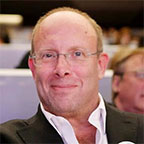
Philip Jaffé
CRC Committee member
Philip D. Jaffé est professeur honoraire à l’Université de Genève. Il a cofondé son Centre interfacultaire en droits de l’enfant et l’a dirigé de 2008 à 2019. En 2018, il est élu au Comité des droits de l’enfant des Nations Unies et il accomplit son deuxième mandat jusqu’en 2027. Psychologue clinicien et forensique, formé en Suisse et aux USA, il exerce encore comme psychothérapeute et expert aux tribunaux. Sa vision professionnelle a toujours été de servir la société civile comme scientifique praticien.
Waiting for Abstract
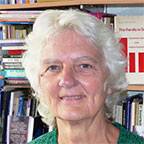
Marilyn Crawshaw
Social Scientist, Hon. Fellow, U of York
Marilyn Crawshaw, PhD, MA CQSW DipApplSocStud BSc(Soc) https://www.york.ac.uk/spsw/staff/marilyn-crawshaw/
Now an Honorary Fellow at University of York and chair of PROGAR https://bit.ly/4dBheN9 – the UK multi-agency and multi-disciplinary group whose focus is on the lifespan impact of donor conception and surrogacy – Marilyn has worked since the 1980s in the field of assisted conception. This has been, variously, as a social worker, social work academic, Social and Ethical Inspector with the HFEA (the UK regulator) and policy adviser. Her research has been with DC adults, recipient parents, donors and professionals. For ten years, Marilyn was the national adviser to UK DonorLink – the government-funded DNA-based voluntary information exchange and contact register for adults genetically related through donor conception. Marilyn has close links with the Donor Conception Network (https://dcnetwork.org/), Donor Concneived UK, and the British Infertility Counselling Association (www.bica.net) and is in regular contact with parents, donor-conceived adults and donors. She also sits on the Executive of York Human Rights City Network: York was the UK’s first Human Rights City.
Abstract for session on Monday 7th October at 15.30
Preparation pre-conception psycho-social issues
Preparing for parenthood & family life using surrogacy and/or donor conception or preparing to be a donor and/or surrogate has unique psychological aspects. At the same time, internalised socialising influences about the nature/nurture balance and norms about family structures can reinforce a medicalised and increasingly commercialised treatment/donation/surrogacy social context to create barriers to exploring their implications. This also applies to professionals, researchers and policy makers.
This paper considers which psycho-social approaches might be effective for improving preparation (for all parties), including by bringing lifespan needs (and beyond) of those yet-to-be conceived into the mix. It particularly considers why donors are relatively invisible in surrogacy arrangements, policy and research.
Abstract for session on Wednesday 8th October at 11.30
National post conception psycho-social support in the UK and elsewhere
The focus on medical and legal aspects of donor conception and surrogacy interventions continues to dominate policy and practice discussions across jurisdictions, sidelining lifespan and intergenerational aspects and obscuring/ shutting down debate about who holds any duty of care for later interventions, including when States hold relevant information.
Evidence is growing – not least from accounts of those thus conceived and DNA-related research – that a range of peer and professional services might be required at different life stages or to meet specific time-limited needs. The historical and present day uncovering of ‘fertility fraud’ and mass donors and the lack of global limits & regulation brings this into stark relief.
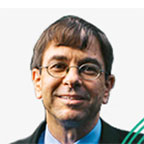
David Smolin
Professor University of Samford
Prof. David Smolin is the Harwell G. Davis Professor of Constitutional Law, and Director, Center for Children, Law, and Ethics, at Cumberland Law School, Samford University. He has served as an independent expert for the Hague Conference on Private International Law (HCCH) on intercountry adoption issues, and has served as an external expert for the International Reference Centre for the rights of children deprived of their family, of the International Social Service (ISS/IRC), on issues related to children’s rights, adoption, and surrogacy, notably the Verona principles. He teaches in the areas of constitutional law, bioethics and law, family and juvenile law, children’s rights, and criminal law and procedure. Many of his publications are available for free download here. He has worked together with his wife, Desiree Smolin, on analysis and reform of adoption systems and practices, and sometimes contributes to the adoption blog she co-founded: Click here.
Waiting for Abstract

Maud de Boer-Buquicchio
UN SR on sale and sexual exploitation (former), CHIP president
Maud de Boer-Buquicchio is internationally recognised as a leading expert in human rights. Notably she was appointed as the United Nations Special Rapporteur on the sale of children, child prostitution and child pornography (2014 – 2020) and was the Deputy Secretary General of the Council of Europe (2002 – 2012). Throughout her mandates, she has been focusing her attention on the fight against discrimination and violence, on the rights of the most vulnerable groups in society, in particular, children. She spearheaded three key Council of Europe Conventions: the Convention on action against trafficking in human beings, the Convention on the protection of children from sexual exploitation and sexual abuse and the Convention on preventing and combating violence against women and domestic violence. In her role as President of Child Identity Protection, she will bring with her decades of experience and determination in tackling sensitive issues connected to children’s identity rights, such as those arising from illegal adoption practices, commercial surrogacy arrangements and other questionable commercial practices. Maud de Boer-Buquicchio is a fluent speaker of Dutch, English, French, Italian and German.
Waiting for Abstract
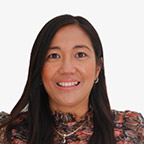
Mia Dambach
Executive Director, Child Identity Protection
Mia Dambach – is a human rights advocate with 20 years’ experience of working on children’s rights, starting her career as a children’s lawyer in Australia. As the Executive Director she brings with her leadership, project management and research skills to ensure that children’s identity rights are better protected worldwide. She has provided technical support, mostly on behalf on UNICEF, through evaluation missions in Cambodia, Denmark, Egypt, Ghana, Ivory Coast, Sudan, Ukraine and Viet Nam, legislative reviews and training in over 20 countries focusing on alternative care, adoption and surrogacy. She has contributed to reforms in international standards through this support as well as comparative research on illegal adoptions, search for origins, risks of financial contributions, kafalah and was an expert to the HCCH WG on illicit adoption practices and WG on parentage/surrogacy. She has successfully led multiple international inter-agency initiatives including three massive online courses that have reached over 50,000 participants. With a family background from Australia, the Philippines and Switzerland, she understands the importance of children having access to their origins.
Waiting for Abstract
- 29 November 2024

